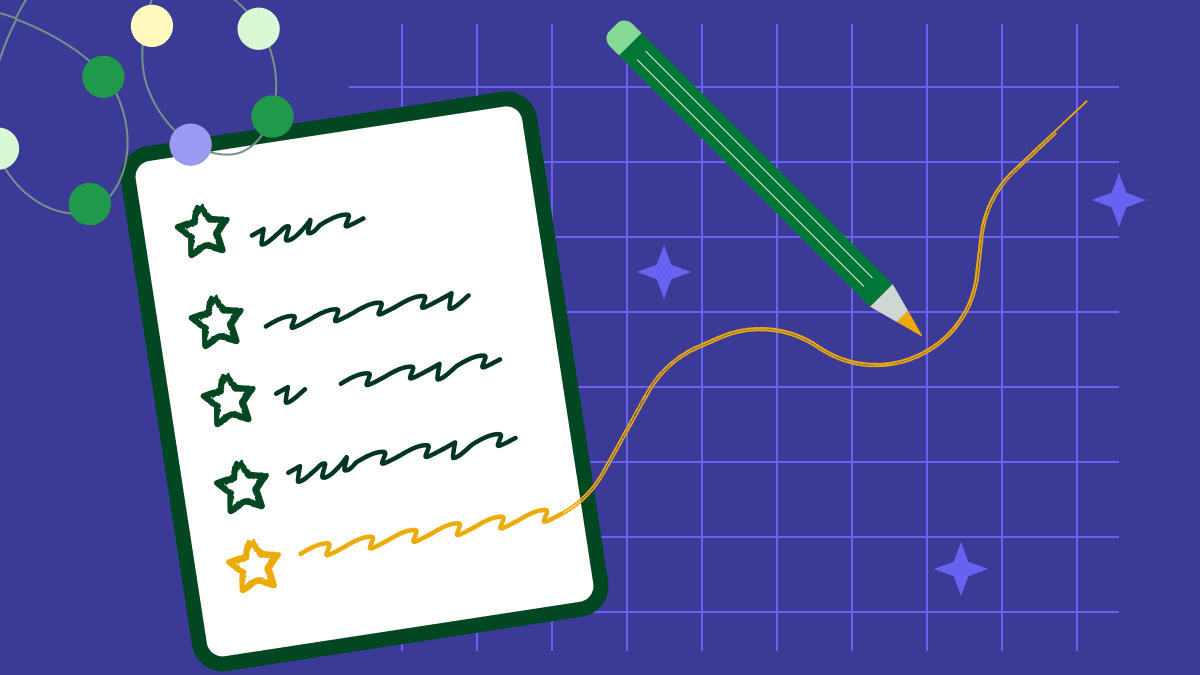The feeling of being overworked and overwhelmed is all too common. Tasks pile up and time feels scarce.
The key isn’t trying to create more time but mastering self-management to navigate your workload effectively.
Self-management describes the ability to shape one’s own professional and personal development relatively independently of external influences. In a business context, it also means a structured working method that helps avoid time pressure and increase personal productivity.
Self-management: definition and significance
Self-management skills are a willingness to responsibly steer and shape one’s life at both private and professional levels so that one’s motivation, performance ability and a healthy work-life balance are maintained in the long term.
In other words, you demonstrate self-management competence if you proactively manage your business and personal daily routines with a healthy dose of emotional intelligence.
What is self-management? The keys to unlocking your sales potential
Self-management is your ability to regulate your behaviors, thoughts and emotions in a productive way. In business, it describes the ability to shape your professional development relatively independently of external influences. It isn't about being the boss of a company; it's about being the boss of you.
Ultimately, this essential skill set is about taking personal responsibility for your own actions and decisions to maximize your potential and optimize your performance. You demonstrate self-management competence when you proactively manage your daily routines with emotional intelligence to maintain your motivation and performance for the long term.
The five crucial self-management skills you need to master
Effective self-management isn't one single trait—it’s a blend of skills that empower you to sell with certainty, even when nobody is looking. Leaders and individual contributors who master these attributes tend to perform better and achieve their goals more rigorously.
- Time management: This is a foundational pillar of self-management. It means you control how you use your time, prioritizing the most important tasks first and avoiding procrastination. It’s about leveraging the time available to you to meet deadlines consistently.
- Self-motivation: This is your inner drive to proactively accomplish daily tasks and pursue goals that genuinely excite you. It involves taking personal responsibility and initiative without waiting for your manager’s direction.
- Adaptability: Change is constant in a fast-paced environment. Being adaptable means you have the confidence and ability to pivot when new project priorities or unexpected changes arise.
- Stress management: Leaders often face stress, so embodying healthy stress management is crucial. This means setting boundaries, prioritizing tasks and practicing self-care to prevent burnout and maintain a healthy work-life balance.
- Decision-making: To be effective, you must develop decision-making skills that reduce confusion. This involves sharpening your critical thinking and using data-driven insights to ensure your actions come from analysis rather than guesswork.
Here are a few powerful self-management techniques to implement today:
- The Pomodoro technique: This method alternates between focused work phases (typically 25 minutes) and short breaks to maintain energy and avoid burnout.
- The Eisenhower box: Sort all your tasks by their urgency and importance (Important/Urgent, Important/Less Urgent, etc.). This helps prioritize your daily plan and focus on what truly moves the needle.
- SMART goal setting: To stay motivated, use the SMART method to set tangible goals that are Specific, Measurable, Achievable, Relevant and Time-bound. Breaking larger projects into smaller, manageable steps can also prevent you from feeling overwhelmed.
- Prioritize self-care: Set boundaries and schedule in time for rest and self-care. This is an essential way to combat feeling overworked and stressed, which in turn lets you refocus your time and energy on what is important.
How strong self-management drives business growth
In the modern workplace, self-management in business is a critical strategy. It involves creating the right framework so people can autonomously make decisions, take initiatives and contribute to the organization's purpose. It is built on trust, not control.
When your team owns their work and has the autonomy to act, you see better business execution and outcomes. Employees with strong self-management skills are more engaged, reliable and better equipped to navigate challenges proactively. They put less pressure on managers, giving the entire department an advantage.
Self-management is simply structured working methods that help avoid time pressure and increase personal productivity. When you use these proven strategies, you reduce chaos and get more time for the essential activities that close deals.
Why self-management methods work
Effective self-management strategies are a crucial success factor for performance and decision-making at work. They’re also personally beneficial because self-management means structure.
Structure in daily life prevents chaos and brings relief. Self-management methods help you to:
Plan effectively
Be more organized
Distinguish important from unimportant tasks
Prioritize
Pursue your own goals more rigorously
Experience less stress and negative time pressure
The goal of self-management is ultimately to find a better structure. This gives you more time for essential tasks, helps with goal setting and reduces the influence of external factors.
Importantly, this doesn’t mean you must schedule every second of your day. On the contrary, buffer times are as essential as planned periods. Self-management techniques can play a significant role in positively influencing your professional and private daily life.
This requires some self-care and self-awareness. Self-management skills are crucial for personal and professional growth. They help individuals manage their time, tasks and emotions effectively. However, if you view the development of your self-management skills as part of your personal development, it can even be enjoyable.
Self-management techniques: Simplify your daily life
Better self-management can simplify your daily life, making you more productive and satisfied. The first step is to learn strategies that support you in achieving your set short and long-term goals while avoiding procrastination.
Here are some of the best self-management techniques we’ve compiled for you:
The Pomodoro Technique helps you boost productivity by alternating between work phases and breaks. You divide your tasks into segments and work for three sessions of 25 minutes each, with five-minute breaks in between. After the fourth interval, take a 30-minute break. Browser-based desktop timers like the Tomato Timer help keep time.
The ABC Method focuses on organization and prioritization. First, list all the tasks you have. Then categorize them into three groups: A-tasks are very important and should be handled immediately, B-tasks are less critical and can be scheduled or delegated and C-tasks are relatively unimportant and can be delegated or discarded.
The Eisenhower Box sorts all tasks by how important and urgent they are. The Eisenhower Matrix creates four types of tasks: important and urgent, important and less urgent, urgent and not important and neither urgent nor important. Your daily plan should then prioritize tasks accordingly.
Getting Things Done (GTD), created by well-known US author David Allen, emphasizes capturing all pending tasks in as few systems as possible to increase productivity. The four typical lists include an action list, a project list, a calendar and a review list. And remember, according to this method, anything that takes less than two minutes should be done immediately.
To-do lists are a classic among self-management techniques and form the basis for many other methods. Modern time management skills should include more: a column for “to do”, a column for “relax” and a column for “not to do” for all the distractions that can steal your time.
Clear goals are a big motivator. The SMART method helps you realistically assess, plan and achieve your goals. The acronym stands for Specific, Measurable, Attractive, Realistic and Time-bound. With the SMART method, you set very tangible goals, focus on measurable metrics and plan so that you’re motivated to stay involved and keep your objectives realistic.
The ALPEN method assists with daily planning and comprises five steps. You proceed letter by letter: A stands for writing down activities, L for estimating the length of the task, P stands for planning buffer time (really 60% for spontaneous tasks and interruptions), E means establishing decision priorities and sorting them by importance and N for reviewing and noting success (what have you accomplished?) Outstanding items are scheduled for the next day.
Time and self-management: How to gain more time
Time management and self-management are closely related. If you don’t plan and organize your workday well, you’ll primarily lack one thing: time.
While you can’t control time – it always passes at the same rate and a day invariably has 24 hours – the term “time management” can be somewhat misleading. What truly matters is what you do with your time.
Self-management means evolving how you work. Various methods, techniques and apps can help you increase productivity and manage stress. You gain what seems elusive: more time.
Final thoughts: Self-management is becoming increasingly important
To avoid being overwhelmed amid back-to-back meetings and packed schedules, it’s crucial to find strategies that help keep your workday under control if you want to own emotional regulation and career development.
Self-management techniques can help you meet numerous demands in an organized manner while keeping your work-life balance in check. The best way to find out which methods suit you is to try them out.
By adopting effective self-management practices, you can make significant strides in managing your daily responsibilities more efficiently, ensuring you meet and exceed professional and personal goals.
As you become adept at self-management, you’ll likely find your days less chaotic and more productive, allowing you to achieve better well-being.




